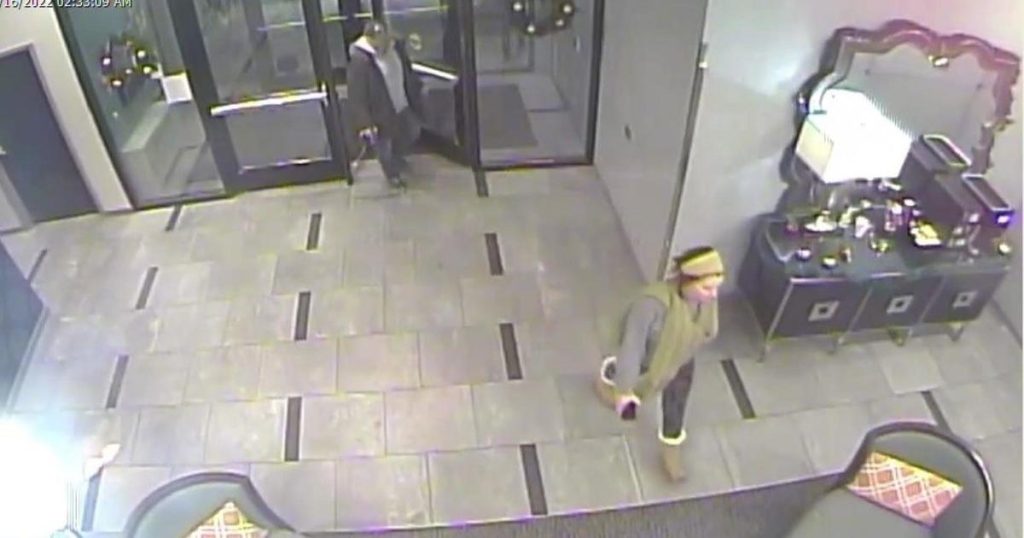In December 2022, Matthew Ecker received a frantic call from his friend Alex Pennig, who was scared of her boyfriend Shane Anderson. Ecker, wanting to protect Pennig, went to her St. Paul apartment with his legally owned gun. The next morning, Pennig was found shot dead in her apartment, and detectives used surveillance footage to piece together her final moments.
Before the incident, Pennig and Ecker went out to bars where they encountered Anderson. A heated confrontation occurred at Camp Bar, leading to Anderson being kicked out while Pennig and Ecker stayed behind. They later walked back to Pennig’s apartment building, where they were captured on surveillance footage entering the lobby and returning to the apartment. Not long after, Pennig was fatally shot.
Ecker made a 911 call claiming that Pennig had shot herself in the head. When police arrived, Ecker appeared distressed and emotional, telling them that Pennig had taken his gun and shot herself in the bathroom. However, detectives found inconsistencies in his story, such as the dry sink in the bathroom and the lack of gunshot residue on Ecker’s body.
Following further investigation, detectives discovered a metal piece of the bathroom door lock near Pennig’s body, indicating that the door had been forced open before she was shot. This evidence contradicted Ecker’s account of the events, leading to his arrest on charges of second-degree murder. Ecker maintained his innocence despite the mounting evidence against him.
Ecker’s trial began in February 2024, and after eight days of proceedings, he was found guilty of second-degree murder in the death of Alex Pennig. In April 2024, Ecker was sentenced to 30 years in prison for the crime. Despite the conviction, Ecker is appealing the ruling as he continues to deny any involvement in Pennig’s death, raising questions about the events that led to the tragic outcome in her St. Paul apartment.
The case of Matthew Ecker and Alex Pennig highlights the complexities of interpersonal relationships and the consequences of escalating conflicts. The evidence presented in court, including surveillance footage and forensic analysis, played a crucial role in determining Ecker’s guilt. The tragedy of Pennig’s death serves as a cautionary tale about the potential dangers of domestic disputes and the devastating impact it can have on the lives of those involved.
As the legal proceedings unfold, the unresolved questions surrounding Pennig’s death continue to linger, casting a shadow over the lives of Ecker, Pennig’s loved ones, and the community at large. The quest for justice and closure in this case underscores the importance of thorough investigation and diligent pursuit of the truth in cases of suspected foul play, shedding light on the complexities of the criminal justice system and the challenges of unraveling the truth in cases shrouded in mystery and deceit.


